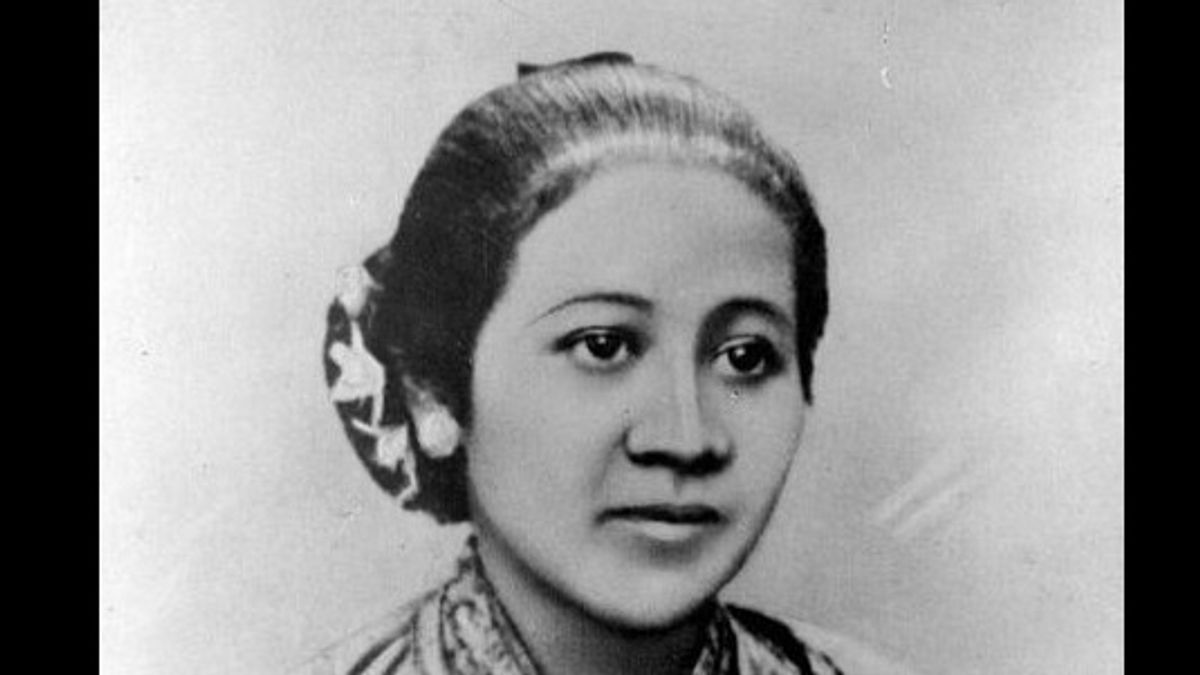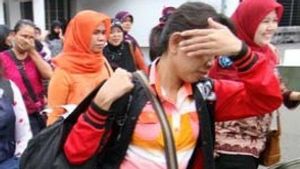JAKARTA - Raden Ajeng Kartini is a national hero. She is known as a champion for women's education rights and (of course) women's emancipation. Because of her thoughts, she became an icon of female advancement. It seems that not many people are able to take advantage of the privileges as great as Kartini so that they grow into individuals who are extraordinarily intelligent and able to think beyond their time.
Kartini was born into a noble and priyayi family. Kartini's father, Raden Mas Sosroningrat, was a Regent of Jepara. His grandfather, Pangeran Ario (PA) Tjondronegoro IV was known to have extraordinary intelligence.
Kartini's enthusiasm for learning can be said to be derived from her grandfather. This is because Tjondronegoro IV is a person who places great importance on the education of his children. So that they do not only pass the Europesche Lagere School (ELS) or European elementary schools. He brought teachers from the Netherlands home to give lessons in general knowledge and ethics of European society.
Meanwhile Kartini's mother, Mas Ajeng Ngasirah, the daughter of Kyai Haji Modirono and Nyai Haji Siti Aminah comes from a well-respected family. Ngasirah has an honorable position in society, because her father is a scholar in Jepara.
Kartini's growth period
As explained by Djoko Marihandono in the book Sisi Lain Kartini (2016), Kartini was born on April 21 at the end of the 19th century or 1879 in Jepara. As a person born in a special family, Kartini grew up with adequate nutrition.
Kartini's physical and motor growth progressed faster than the other children. This growth was accompanied by the development of Kartini's level of intelligence. He grew up as a very curious child.
In 1885 Kartini was educated at a special primary school for Indo European and Dutch children, Europesche Lagere School (ELS). The only natives allowed to study there were children whose parents were high government officials.
Kartini's educational process made her able to put herself well in social interactions. His friends were not only from the indigenous group, he had many friends both Indo Dutch and totok. For example, Letsy Detmar is the son of the principal and wife of the assistant resident of Jepara, Mrs. Marie Ovink-Soer.
After graduating from ELS in 1892, Kartini hoped her father would allow her to continue her studies at the famous HBS Semarang. However, RM Sosronigrat did not allow it. In accordance with the tradition of the aristocracy, when she grew up Kartini had to enter a period of seclusion.
Like it or not, Kartini, who is not yet 13 years old, has to live in that spacious house. Kartini is forced to learn to be an obedient daughter of a true noble.
Managed to take advantage of a secession situation
During that seclusion period, Kartini did not remain silent. He took advantage of the seclusion room to satisfy his penchant for reading. After finishing her chores at home, Kartini immediately took a book, newspaper, or magazine to read. All he reads on various themes, so that his mind is filled with knowledge.
The opportunity for Kartini to be able to get unlimited reading material, she made the most of it. Because at that time, not everyone could access knowledge as broadly and freely as Kartini.
Kartini's father, RM Sosroningrat, and her brother, RM Sosrokartono, were the ones who were willing to fulfill their reading material needs. His father subscribed to a reading box (leestrommel) containing books, newspapers and magazines from home and abroad which were exchanged every week. One of his routine readings was the newspaper De Locomotief, which made him aware of events taking place in the Dutch East Indies or in Europe.
In the four years of undergoing seclusion, Kartini only left her neighborhood five times. During his seclusion, Kartini was also close to two of her younger siblings, RA Roekmini and RA Kardinah.
Seeing the potential of his three children, Regent Sosroningrat finally freed the tradition of seclusion on May 2, 1898. Kartini was finally released to enjoy her world again.
Hopeful time
Kartini's enthusiasm for studying in the Netherlands is still burning. The opportunity for that was slightly opened up when the colonial government began to implement ethical politics. This politics required the government to improve the welfare of the colonized communities in the Dutch East Indies, such as Britain in the welfare of its colonies in India.
In addition, Kartini's ideas regarding education and the emancipation of women began to get the attention of the Dutch East Indies government. At that time the Dutch government sent the Director of the Ministry of Education, crafts and religion, JH Abendanon to Jepara in 1900. The aim was to explain the plan to establish a kostschool - boarding school - for noble girls. Kartini supports the plan. It was during this meeting that hopes to continue Kartini's education began to grow again.
In short, Kartini continued to look for loopholes so that she could go to school in the Netherlands, until it reached the ears of Van Kol (Member of the Dutch Parliament). Kartini's idea of an effort to advance women and her desire to study in a windmill land made Van Kol succeed in obtaining scholarships for Kartini and her younger brother Roekmini.
However, due to pressure from various parties, starting from his relatives, Kartini canceled her studies in the Netherlands and chose to study in Batavia to become a teacher as she aspired to be.
Some of the reasons were Kartini's concern that her going to the Netherlands would make people forget her. He was also worried about his father's health condition. And finally, he apparently wanted to immediately realize his dream of opening a school as promised by Abendanon.
The approval process for Kartini to attend school in Batavia turned out to be a long time. While waiting for a reply to his educational proposal, Kartini decided to open a school for girls and started operating in June 1903. This school emphasizes on fostering character and character, therefore the school atmosphere is created like an atmosphere at home.
The waiting period for his education approval became even more long when Kartini received an application from Raden Adipati Djojo Adiningrat. This incident made Kartini hesitant. Although her parents did not force Kartini to get married, on the other hand Kartini did not want to disappoint her parents.
In short, Kartini accepted Raden Djojo Adiningrat's application, on the condition that her husband supported Kartini's ideas and ideals. The future husband was also able to do this, because Adiningrat reportedly also had an advanced mindset.
Finally, he buried Kartini's desire to study in Batavia deeply. Kartini considered it was her destiny to live her life line.
After giving birth to her first child, Kartini died on September 17, 1904. She breathed her last at a very young age of 25 years.
Maybe not many people are able to use their privileges as well as Kartini. So that she is able to become a beacon of Indonesian female figures with all the advantages and disadvantages of the existing situation.
The English, Chinese, Japanese, Arabic, and French versions are automatically generated by the AI. So there may still be inaccuracies in translating, please always see Indonesian as our main language. (system supported by DigitalSiber.id)










